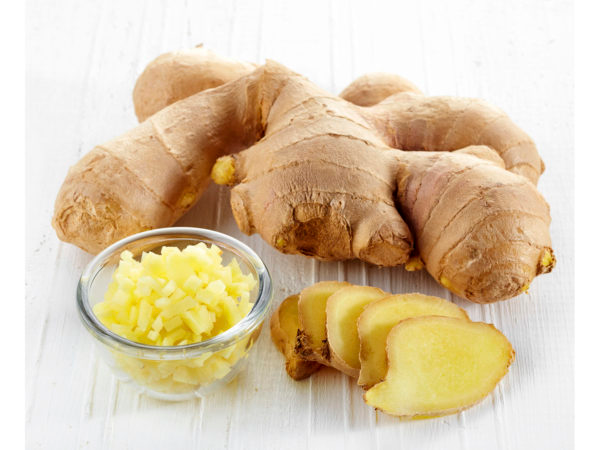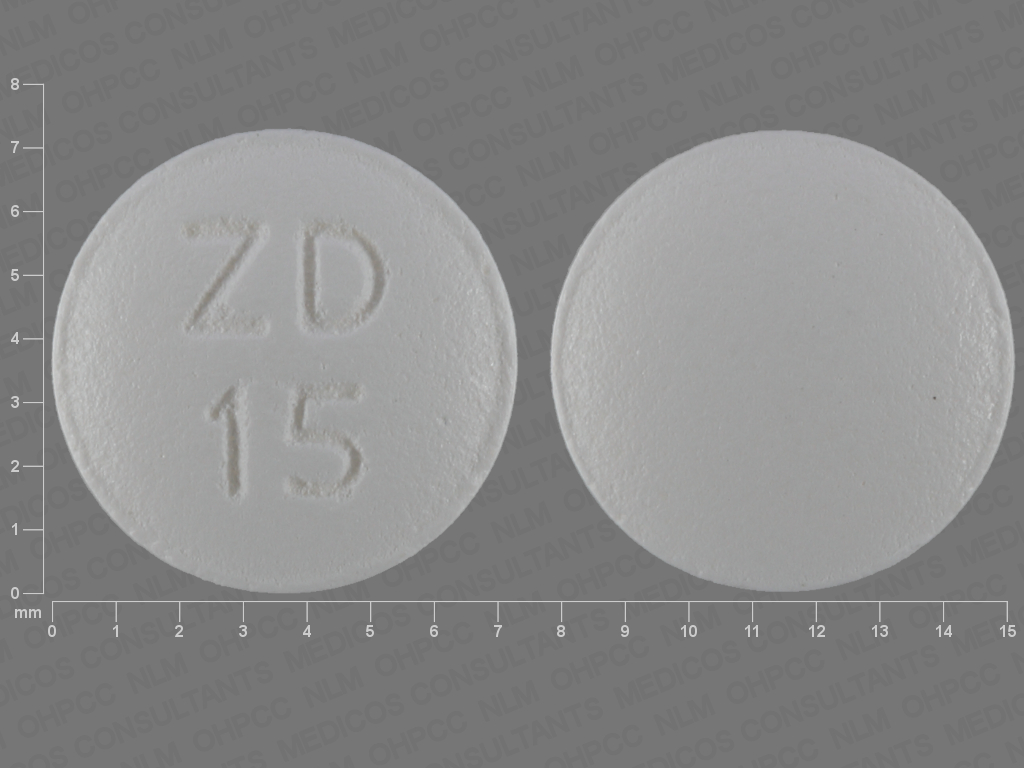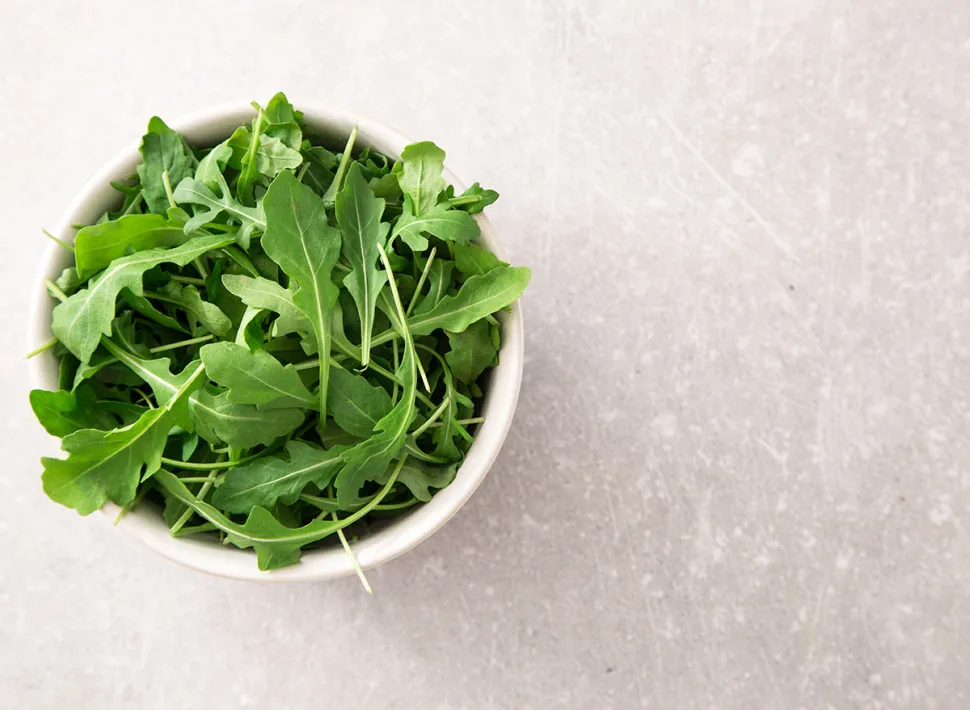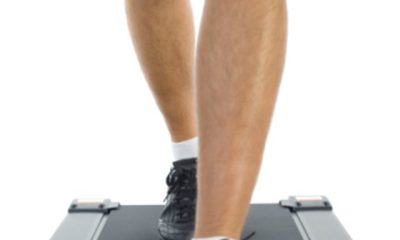Health
How to use ginger for migraines and headaches

Discover how to use ginger for migraines and headaches.
Derived from the rhizome of the Zingiber officinale species native to India, dried ginger is used as a spice in cooking, but also in traditional medicine as a natural remedy, in particular, to relieve headaches and migraine.
Let’s find out together why and how to use ginger for migraines and headaches.
Migraine and its causes
Migraine is a pathology manifested by headaches, sometimes violent, occurring regularly and repetitively, usually on one side of the head, sometimes associated with vomiting.
Seizures last 4 to 72 hours, and appear more or less frequently, ranging from several times a week, to just a few times a year.
There are many causes of migraine, and many factors can influence this disease:
• Digestive disorders
• Hormonal disturbances
• Eye problems
• Sinusitis
• Arterial hypertension
• Dental infections
• Anemia
• Cervical blockages
• Kidney problems
• Lifestyle: quality of diet, stress, fatigue, tobacco, alcohol, lack of physical activity, etc.
• etc.
It is, therefore, necessary to resolve the cause of migraine before trying to relieve it.
Ginger: a natural remedy to relieve migraine
There are many natural solutions to relieve and pass a migraine, among them: ginger.
The action of ginger on nausea, motion sickness, and dizziness is no longer to be proven, as are it is anti-inflammatory and vasodilator effects. Its cumulative properties make ginger an effective ingredient in relieving migraine pain.
Even if the use of ginger against migraines is very old, there is to date only one comparative study in powder of the rhizome and Sumatriptan, a drug prescribed worldwide against migraines, which exists under different trade names. : Imitrex, Treximet, Imigran, etc.
This 2014 randomized study was conducted in Iran on 100 migraine patients, double-blind controlled for one month, aimed at comparing the effectiveness of taking ginger with that of sumatriptan in the treatment of migraine attacks.
One group took conventional sumatriptan 50 mg treatment, and the other group took a ginger powder in 250 mg capsules or 1/8 teaspoon of ground ginger. The treatment should be taken as soon as the pain appears.
Results: 2 hours after taking the treatment, 70% of the patients who took sumatriptan reported a significant reduction in symptoms, compared to 64% of the group who took ginger.
The efficacy reported by the patients is similar with a drop of more than 4.5 units on the VAS scale for the 2 groups. After 1 month of treatment, each of the patients states that they wish to continue with the treatment given to them.
The main difference between the two treatments is the side effects: indeed, taking sumatriptan has shown the appearance of side effects, mainly dizziness, a sedative effect, and heartburn, while taking ginger showed no adverse effects.
The researchers conclude that ginger is an additional natural option to consider in the fight against migraines, which may be offered to patients with contraindications to treatment with triptans.
How to use ginger for migraines
The study cited above was done with powdered ginger, but it is possible to consume dried or fresh root ginger.
You can consume it several times a day, directly in a glass of water, or make ginger tea. It is possible to mix the ginger powder with a little honey to facilitate its setting.
In case of migraine, take 250 mg of powdered ginger anyway to relieve the attack, and be sure to see a doctor.
Side effects of ginger for migraines and headache
As we have seen, there is no adverse effect to the consumption of ginger if the doses are respected, but it is advisable to take precautions in case of consumption of ginger, it is up to you to consult them to consume it. safely.
To sum up, you should be careful in the following cases: coagulation problems, before surgery, gallstones, thinness, ulcers, in case of anticoagulant treatments, against diabetes, hypertension, and heart problems
Health
Serious side effects of topamax

Discover the serious side effects of Topamax
One of the medicines used to treat seizures in adults is Topamax, the active substance of which is topiramate.
The taking of this drug should always be done under medical prescription and with the corresponding prescription, as well as it is essential to follow the instructions regarding the dosage indicated by the specialist.
To learn more about Topamax along with its indications, use, and side effects, keep reading this article.
What is Topamax for
Topamax is a topiramate-based drug used to treat seizures in adults and children older than 2 years.
This anticonvulsant is administered in the event of partial seizures with or without secondary generalization or primary generalized tonic-clonic seizures and for the treatment of seizures associated with Lennox-Gastaut Syndrome.
It should be noted that this drug is also used to prevent migraine, although not as a treatment to alleviate them.
Warnings about Topamax
Taking Topamax should always be prescribed by a doctor and it will be necessary to notify your doctor beforehand in case of:
•glaucoma or other eye problems
•kidney disease, kidney stones, or dialysis
•breathing problems
•mood problems, depression, or suicidal thoughts or attempts
•liver disease
•osteoporosis, osteomalacia
•growth disorders
•be taking lithium
•suffer from diarrhea
•being lactose or sucrose intolerant
•It is also not recommended to take Topamax by pregnant or lactating women, as this drug can cause fetal harm or be excreted through breast milk.
Likewise, you should never drink alcohol while you are being treated with Topamax, as the side effects can be very serious.
Side effects of Topamax
Different side effects derived from taking Topamax have been described, so you should go or notify your doctor quickly if you feel any of the symptoms described below:
•Allergic reactions such as difficulty breathing, hives, swelling of the face, tongue, lips, or throat.
•Sudden changes in mood or behavior
•Anxiety and/or panic attacks
•Difficulty to sleep
•Irritation, agitation, and hyperactivity (mentally or physically)
•Depression or thoughts of killing yourself or hurting yourself
•Numbness or tingling in the extremities
•Headache, tiredness, dizziness, or drowsiness
•Changes in taste
•Nausea, diarrhea, indigestion, stomach pain, loss of appetite or weight
•Quick back and forth movements in your eyes.
Likewise, it should be noted that these are not only the adverse effects that Topamax can cause, so you should consult your doctor in case of any other type of alteration or symptom.
This article is merely informative, we do not have the power to prescribe any medical treatment or make any type of diagnosis.
We invite you to go to a doctor in the case of presenting any type of condition or discomfort.
Health
18 benefits of peanuts during pregnancy

Discover the 18 benefits of peanuts during pregnancy.
Peanuts during pregnancy can be very beneficial for future mothers and their fetuses. Peanuts are not only delicious, but they are also packed with vitamins, minerals, and other natural compounds that are great for pregnancy, which you can’t miss.
You must remember that pregnancy is a wonderful gift that only women can experience.
Being pregnant is like a noble job ordained directly by God for women, something that men could not do on their own. During pregnancy, the fetus magically grows inside the woman’s womb until the baby is born into the world.
To ensure the optimal development of the fetus before it is born, mothers must consume highly nutritious food because it is the only way the fetus can obtain food.
When it comes to the list of foods that mothers should consume during pregnancy, the list will be endless, but you could consider the benefits of peanuts during pregnancy, as peanuts
Peanut Nutritional Values
Peanuts are considered a healthy snack. However, this does not mean that you can consume without knowing the nutrients that peanuts contain.
By knowing the nutrients contained in peanuts, you can measure the number of peanuts needed during pregnancy, since surely the needs of each one are different from those of others.
Serving Size: 100 grams
Energy 567 kcal – 29%.
Carbohydrates 16.13 g – 12%.
Protein 25.8g – 46%.
Total fat 49.24 g – 165%.
Dietary fiber 8.5g – 22%.
Folate 240 µg – 60%.
Niacin 12mg – 75%.
Pantothenic acid 1,767 mg – 35%.
Pyridoxine 0.348 mg – 27%.
Riboflavin 0.135 mg – 10%.
Thiamine 0.64 mg – 53%.
Vitamin E 8.33mg – 55%.
Calcium 92mg – 9%.
Copper 1,144 mg – 127%.
Iron 4.58mg – 57%.
Magnesium 168mg – 42%.
Manganese 1,934 mg – 84%.
Phosphorus 76 mg – 54%.
Selenium 7.2 µg – 13%.
Zinc 3.27mg – 30%.
Sodium 18mg
Potassium 705mg – 15%.
From the table above, surely you have a general idea of the number of peanuts you could consume daily.
The key is to consume it in moderation, but sometimes it is necessary to ensure that the daily intake of a certain nutrient can be met to ensure optimal development of the fetus.
18 Benefits of Peanut During Pregnancy
Below are the benefits of peanuts during pregnancy that will give you reasons why you should add this healthy and delicious snack to your daily diet.
1.- Excellent source of folate
During pregnancy it is highly recommended to consume foods rich in folate and peanuts are one of them.
For every 100 grams of peanuts, approximately 60% of the daily intake of folate could be covered. It is common knowledge that folate is essential for fetal development, especially early in the trimester.
2.- Natural source of vegetable protein
Protein is essential for a mother during pregnancy and 100 grams of peanuts contains enough protein to meet the daily intake.
3.- Prevents birth defects
The birth defect can occur when the development of the fetus is disturbed or when there are insufficient nutrients to support development.
Peanuts are packed with vitamins and minerals that are great for pregnancy like folate to support optimal growth and minerals like iron and calcium to make sure there is enough red blood cell stock.
4.- Promotes optimal brain development
It is great food for the brain. During pregnancy, the fetus receives nourishment from the mother, and the folate consumed by the mother is not only beneficial to the mother, but also the developing brain of the fetus.
If you want to have a healthy and smart baby, eat peanuts during pregnancy.
5.- Source of calories for the mother
Each mother’s calorie needs may be different, but calories are essential for increased energy.
During pregnancy, a mother may suffer from fatigue and get tired easily. To help boost energy, peanuts can help restore it.
6.- Contains healthy fats
Not all fats are bad and peanuts do contain some healthy fats that are great for the mother during pregnancy.
Healthy fats are great for promoting a healthy heart, as mothers are at high risk for high blood pressure during pregnancy.
7.- Reduces the risk of allergic diseases
Recent studies have indicated that mothers who consume peanuts during pregnancy may reduce the risk of allergic diseases.
Not only allergic foods such as peanuts but also other types of allergies such as asthma.
8.- Helps control blood pressure
High blood pressure during pregnancy could be fatal for both the mother and the fetus. That is why it is very important to always keep your blood pressure under control.
To help control blood pressure, adding peanuts to your daily diet is highly recommended because basically, peanuts are great for your heart.
9.- Prevents gestational diabetes
On the table, it was seen that peanuts are quite rich in manganese. This mineral has an important role in regulating blood sugar levels during pregnancy to prevent gestational diabetes. Additionally, manganese also promotes optimal calcium absorption.
10.- Fight depression
During pregnancy, the mother is at risk of stress and depression. Well, some studies have shown that mothers who eat peanuts are much happier than those who don’t. So whenever she feels stressed, she snacks on peanuts.
11.- Decreases the risk of weight gain
Obesity during pregnancy is never good for both mother and baby. That’s why managing your weight is so important peanuts, while they do contain fat and calories, fats are healthy fats and packed with other nutrients that may help you control calories.
12.- Promotes skin health during pregnancy
One of the problems that every mother has to deal with during pregnancy is the skin problem.
Although they are prohibited from using cosmetics due to their chemical content, they could manage their skin problem just by consuming peanuts. Vitamin E and antioxidants will help prevent all skin conditions.
13.- Source of vitamin E
Vitamin E is the reason why a pregnant mother should look good. Vitamin E promotes skin health and makes sure that there is no such skin condition that the mother has to face.
Therefore, they could focus on her pregnancy instead of giving birth to a healthy baby.
14.- Great source of omega 3 fatty acids
If you think that fish is not your friend during pregnancy but you know that you need a great source of omega 3 fatty acids, you could replace fish with peanuts because they contain quite high healthy fats.
15.- Excellent source of vitamin B complex
In the table above you can see the high content of vitamin B found in peanuts per 100 grams. Most of them could satisfy almost half of the daily intake of vitamin B.
16.- Contains powerful antioxidants
Antioxidants are not only a solution against cancer, but during pregnancy, antioxidants could help the mother to maintain her immune system so that she doesn’t get sick easily.
17.- Rich in minerals
Looking for a quick fix to meet your daily mineral intake during pregnancy, peanuts are the answer.
You could see the nutritional table above about the value of minerals found in peanuts. 100 grams of peanuts are capable of satisfying half of the daily intake of minerals that your body needs.
18.- Super healthy sandwich
Well, during pregnancy you need to make sure that you consume enough food to ensure the optimal development of the fetus. Add peanuts to your daily diet because they are the super healthy snack that everyone loves.
Peanut Precautions
Peanuts may be packed with vitamins, minerals, and other natural compounds that are beneficial during pregnancy.
The list of benefits of peanuts during pregnancy mentioned above are scientifically proven facts. However, there are still some precautions about peanuts that you should be aware of as well.
Allergic reaction is one of the common things that can happen when peanuts are consumed. If a mother has ever been diagnosed as allergic to peanuts, she should not eat them.
Some studies also claim, that too many peanuts consumed during pregnancy could increase the risk of allergic reaction to the baby when they were born. Therefore, it is better to consume it in moderate amounts.
Peanut butter can be delicious, but it is recommended to consume it in its real form, as peanut butter has been through some processing and care must be taken with the amount of refined sugar in peanut butter.
Be careful with salty peanut snacks too because they can be delicious to eat during pregnancy, but salt contains sodium that could increase your blood pressure level. High blood pressure during pregnancy can be fatal.
Peanuts are healthy snacks that mothers can add to their daily diet, especially in the early stages of pregnancy when morning sickness is at its worst.
Just by eating peanuts as a snack, you could at least ensure that the baby inside your womb is still getting the nutrients that she needs to develop.
However, you need to keep in mind the precautions mentioned above if you want to reap the full benefits of peanuts during pregnancy and not the other way around.
Health
10 shocking health benefits of Arugula

Table of Contents
-

 Benefits4 months ago
Benefits4 months agoThe Benefits of Joining Gym Lumolog – Improve Your Fitness & Health
-

 Food1 year ago
Food1 year ago10 + Benefits of carrot juice and side effects
-

 Health1 year ago
Health1 year ago50 Super Healthy (And Very Often Cheap) Foods
-

 Health1 year ago
Health1 year ago5 Shocking health benefits of kinkeliba and side effects
-

 Health1 year ago
Health1 year ago15 health benefits of soursop leaves tea and side effects
-

 Food1 year ago
Food1 year ago8 shocking benefits of leek juice and side effects
-

 Health1 year ago
Health1 year ago15 Benefits of lipton tea and side effects
-

 Health1 year ago
Health1 year agoBenefits of guava leaves Sensually












